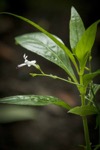Notice (8): Undefined index: geoplugin_countryCode [APP/Controller/AppController.php, line 94]Code Context$Country_code = '';if($ip_data && $ip_data['geoplugin_countryCode'] != null) {$Country_code = $ip_data['geoplugin_countryCode'];$client = null $forward = null $remote = '216.73.216.24' $ip = '216.73.216.24' $ch = unknown $ip_data_in = '{ "geoplugin_status":429, "geoplugin_message": "Blacklisted due to sending too many requests to geoplugin.net. Consider whitelisting your IP or domain", "geoplugin_url": "https://www.geoplugin.com/premium/" } ' $ip_data = [ 'geoplugin_status' => '429', 'geoplugin_message' => 'Blacklisted due to sending too many requests to geoplugin.net. Consider whitelisting your IP or domain', 'geoplugin_url' => 'https://www.geoplugin.com/premium/' ] $Country_code = ''App\Controller\AppController::initialize() - APP/Controller/AppController.php, line 94 App\Controller\ProductsController::initialize() - APP/Controller/ProductsController.php, line 31 Cake\Controller\Controller::__construct() - CORE/src/Controller/Controller.php, line 273 ReflectionClass::newInstance() - [internal], line ?? Cake\Http\ControllerFactory::create() - CORE/src/Http/ControllerFactory.php, line 47 Cake\Http\ActionDispatcher::dispatch() - CORE/src/Http/ActionDispatcher.php, line 91 Cake\Http\BaseApplication::__invoke() - CORE/src/Http/BaseApplication.php, line 235 Cake\Http\Runner::__invoke() - CORE/src/Http/Runner.php, line 65 Cake\Http\Runner::__invoke() - CORE/src/Http/Runner.php, line 65 Cake\Http\Middleware\CsrfProtectionMiddleware::__invoke() - CORE/src/Http/Middleware/CsrfProtectionMiddleware.php, line 104 Cake\Http\Runner::__invoke() - CORE/src/Http/Runner.php, line 65 Cake\Http\Runner::run() - CORE/src/Http/Runner.php, line 51 Cake\Routing\Middleware\RoutingMiddleware::__invoke() - CORE/src/Routing/Middleware/RoutingMiddleware.php, line 168 Cake\Http\Runner::__invoke() - CORE/src/Http/Runner.php, line 65 Cake\Routing\Middleware\AssetMiddleware::__invoke() - CORE/src/Routing/Middleware/AssetMiddleware.php, line 88 Cake\Http\Runner::__invoke() - CORE/src/Http/Runner.php, line 65 Cake\Error\Middleware\ErrorHandlerMiddleware::__invoke() - CORE/src/Error/Middleware/ErrorHandlerMiddleware.php, line 96
| Scientific: | Andrographis paniculata |
|---|---|
| Other: | Andrographis |
| Family: | Acanthaceae |
Andrographis is an herb used in the Asian traditional medical system (including Unani, Ayuverdic, and traditional Chinese medicine) to “clear heat” associated with fevers and infections. The herb contains bitter diterpenoid compounds (andrographolides) that have strong antimicrobial effects including: antibacterial, anti-parasitic, antifungal, and antiviral. It is commonly used for colds and flus, and research shows it is effective in reducing symptoms of upper respiratory tract infections (URTI). Currently Thaialand is recommending the use of andrographis for Covid-19 infections.
One of Andrographis' common names translates to “King of Bitters” which clearly shows that it acts as a bitter tonic to help increase digestive function. Historically, it has been used to treat infections of the gastrointestinal system, including diarrhoea and dysentery. In addition, andrographis has some important anti-inflammatory and immunomodulating effects. Clinical trials have shown it may exert a positive effect on patients with ulcerative colitis.
Infection
• viral infection- hepatitis (HCV, HBV)- HIV- upper respiratory tract infections- Dengue fever
• cold sores (herpes simplex)
• bacterial infection- typhoid fever
Respiratory
• upper respiratory tract infection (URTI)
• influenza
• lung injury (smoking, inflammation)
Gastrointestional
• poor digestion
• inflammatory bowel disease
- ulcerative colitis
• infectious diarrhea
Hepatobiliary
• biliary insufficiency
• cholestasis
• cholelithiasis (gallstones)
• jaundice
• hepatitis
• Bitter
• Immunostimulant
• Antimicrobial
• Antiviral
• Antibacterial
• Antimalarial
• Antiparasitic
• Hepatoprotective
• Antithrombogenic
• Antiinflammatory
• Antipyretic
• Febrifuge
• Emmenagogue
• Abortifacient
• Diterpene Lactone (Andrographolide )
• 1.5-6g of dried herb
• 3-12 ml/day of 1:2 fluid extract
• Pregnancy • contraindicated
Bone K. Principles and Practice of Phytotherapy. Edinburgh: Churchill Livingstone, 2000.
Bone K. A Clinical Guide to Blending Liquid Herbs: Herbal Formulations for the Individual Patient. St Louis, MO: Churchill Livingstone, 2003.
Disclaimer: This content is subject to change. The information is intended to inform and educate; it does not replace the medical evaluation, advice, diagnosis or treatment by a healthcare professional. www.nhpassist.com © 2014 NDAssist Inc. and/or its affiliates. All rights reserved.

|
Andrographis
SummaryAndrographis is an herb used in the Asian traditional medical system (including Unani, Ayuverdic, and traditional Chinese medicine) to “clear heat” associated with fevers and infections. The herb contains bitter diterpenoid compounds (andrographolides) that have strong antimicrobial effects including: antibacterial, anti-parasitic, antifungal, and antiviral. It is commonly used for colds and flus, and research shows it is effective in reducing symptoms of upper respiratory tract infections (URTI). Currently Thaialand is recommending the use of andrographis for Covid-19 infections. IndicationsSign in requiredActionsSign in requiredConstituentsSign in requiredPosologySign in requiredSafetySign in requiredReferencesSign in required |
|---|